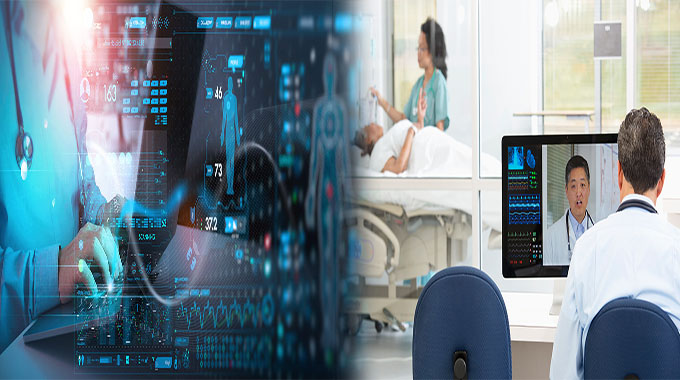In today’s modern healthcare systems, computer networks play a crucial role in streamlining operations, improving patient care, and ensuring data security. The integration of computer networks in healthcare has revolutionized the industry by providing healthcare providers with instant access to vital information and improving overall efficiency. Below we delve into the key reasons why computer networks are indispensable in healthcare systems.
1. Data Sharing and Connectivity:
Computer networks facilitate seamless sharing of patient information among healthcare providers, leading to more coordinated care and informed decision-making. This connectivity allows different healthcare professionals to access a patient’s medical history, test results, and treatment plans in real-time, ensuring continuity of care.
2. Telemedicine and Remote Monitoring:
Computer networks enable the implementation of telemedicine services, allowing patients to consult with healthcare providers remotely. Remote monitoring devices connected to computer networks can track vital signs and manage chronic conditions, providing patients with personalized care from the comfort of their homes.
3. Efficient Record-Keeping and Documentation:
Electronic Health Records (EHRs) made possible through computer networks eliminate the need for paper-based records, reducing errors and improving the accuracy of patient information. Digitized documentation also enhances the speed of accessing patient information, enabling healthcare providers to make informed decisions swiftly.
4. Enhanced Data Security:
Computer networks incorporate robust security measures to safeguard patient data against potential cyber threats. Encryption, firewalls, and access controls are implemented to ensure the confidentiality and integrity of sensitive medical information, adhering to strict privacy regulations such as HIPAA.
5. Resource Optimization:
By automating processes and centralizing data storage, computer networks help healthcare facilities optimize resource utilization. Streamlined workflows, appointment scheduling, and inventory management lead to cost savings and efficient use of healthcare professionals’ time.
6. Improved Patient Outcomes:
The speed and accuracy enabled by computer networks contribute to better diagnoses, personalized treatment plans, and enhanced patient outcomes. Healthcare providers can collaborate more effectively, resulting in a higher quality of care and reduced medical errors.
The importance of computer networks in healthcare systems cannot be overstated. The seamless connectivity, data sharing capabilities, enhanced security measures, and improved efficiency offered by computer networks significantly elevate the quality of care provided to patients. Embracing advancements in technology and integrating computer networks into healthcare systems will continue to drive innovation and transformation in the healthcare industry.














